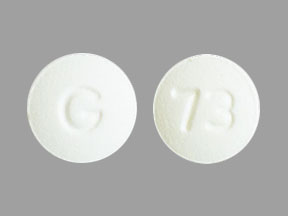Voriconazole Interactions
There are 691 drugs known to interact with voriconazole, along with 6 disease interactions, and 1 alcohol/food interaction. Of the total drug interactions, 263 are major, 397 are moderate, and 31 are minor.
- View all 691 medications that may interact with voriconazole
- View voriconazole alcohol/food interactions (1)
- View voriconazole disease interactions (6)
Most frequently checked interactions
View interaction reports for voriconazole and the medicines listed below.
- Advair Diskus (fluticasone / salmeterol)
- Aspirin Low Strength (aspirin)
- Ativan (lorazepam)
- Augmentin (amoxicillin / clavulanate)
- Bactrim (sulfamethoxazole / trimethoprim)
- Bactrim DS (sulfamethoxazole / trimethoprim)
- Benadryl (diphenhydramine)
- CellCept (mycophenolate mofetil)
- Cipro (ciprofloxacin)
- Co-trimoxazole (sulfamethoxazole / trimethoprim)
- Eliquis (apixaban)
- Lasix (furosemide)
- Lexapro (escitalopram)
- Metoprolol Succinate ER (metoprolol)
- Metoprolol Tartrate (metoprolol)
- Mucinex (guaifenesin)
- Nexium (esomeprazole)
- Paracetamol (acetaminophen)
- Protonix (pantoprazole)
- Singulair (montelukast)
- Spiriva Respimat (tiotropium)
- Symbicort (budesonide / formoterol)
- Trelegy Ellipta (fluticasone / umeclidinium / vilanterol)
- Tylenol (acetaminophen)
- Vitamin B12 (cyanocobalamin)
- Vitamin B6 (pyridoxine)
- Vitamin C (ascorbic acid)
- Vitamin D3 (cholecalciferol)
- Zofran (ondansetron)
- Zyrtec (cetirizine)
Voriconazole alcohol/food interactions
There is 1 alcohol/food interaction with voriconazole.
Voriconazole disease interactions
There are 6 disease interactions with voriconazole which include:
- QT prolongation
- electrolyte disturbances
- galactose intolerance
- hepatotoxicity
- renal dysfunction
- risk of pancreatitis
More about voriconazole
- voriconazole consumer information
- Compare alternatives
- Pricing & coupons
- Reviews (7)
- Drug images
- Side effects
- Dosage information
- During pregnancy
- Drug class: azole antifungals
- Breastfeeding
- En español
Related treatment guides
Drug Interaction Classification
| Highly clinically significant. Avoid combinations; the risk of the interaction outweighs the benefit. | |
| Moderately clinically significant. Usually avoid combinations; use it only under special circumstances. | |
| Minimally clinically significant. Minimize risk; assess risk and consider an alternative drug, take steps to circumvent the interaction risk and/or institute a monitoring plan. | |
| No interaction information available. |
See also:
Further information
Always consult your healthcare provider to ensure the information displayed on this page applies to your personal circumstances.


